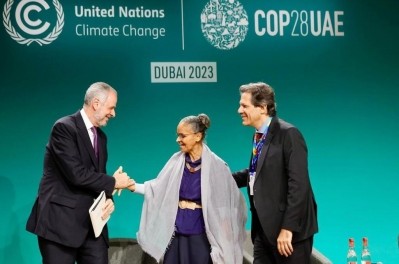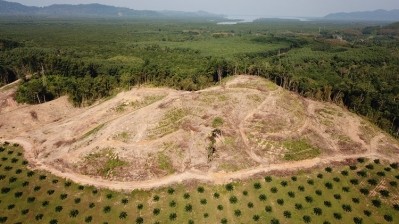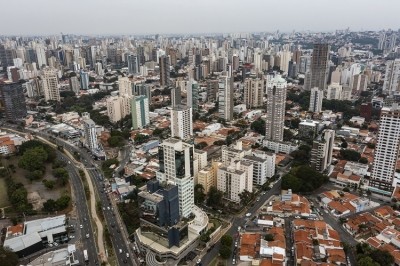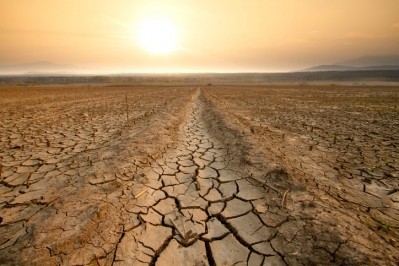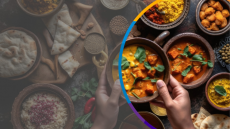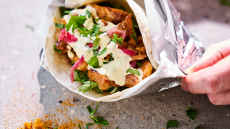From deforestation to human rights: EU urged to put indigenous perspective at centre of EU policy
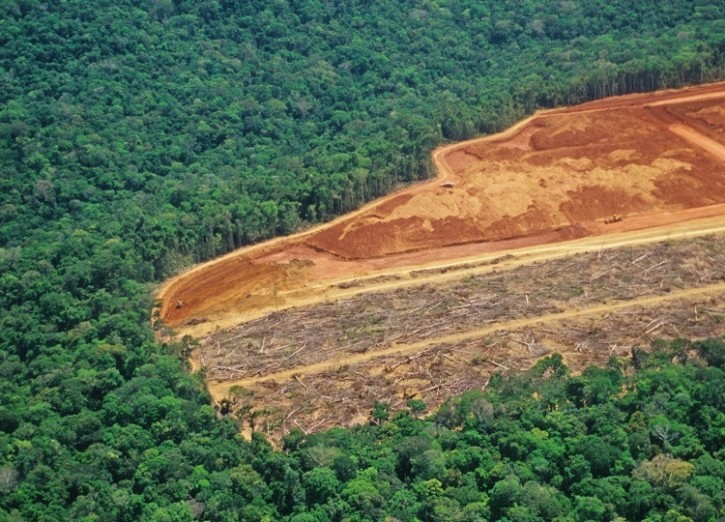
There are an estimated 475m Indigenous Peoples worldwide, accounting for just 6% of the global population. And yet that 6% protects more than 80% of the world’s biodiversity across forests and deserts, grasslands and marine environments.
Indigenous Peoples are not only the present-day stewards of these biodiverse-rich areas, but have lived in and managed these environments for centuries. Areas are governed according to their own practices, which are often out of sync with ideology coming from the Global North, according to Edson Krenak, indigenous advocate at NGO Cultural Survival.
In food, this makes for a big problem. Indigenous Peoples don’t see food as a ‘mere product’, explained Krenak, a member of the Krenak Indigenous Peoples in Brazil. “We see food as having a relationship with the land. We see food and land and nature as knowledge that we develop.”
With between 70-80% of the world’s food produced by Indigenous Peoples, as well as family farmers, fisherfolks and forest communities, Krenak is campaigning for indigenous perspectives to be represented in EU law via greater collaboration between Indigenous Peoples, governments, and industry.
A history of environmental degradation and human rights violations
Brazil is the single biggest exporter of agricultural products to the EU worldwide, and a major global supplier of soy, corn, sugar, coffee, orange juice and meat.
Although Brazil’s economy benefits from this arrangement (the value of Brazil’s global agricultural exports reached $125bn [€118bn] in 2021), its Indigenous Peoples do not, explained Krenak at FoodNavigator’s recent Climate Smart Food digital summit.
The EU-Brazil relationship has often prioritised economic interests, and although partnerships and trade agreements have led to economic growth, they have also exploited natural resources on indigenous lands.
According to MapBiomas data, agribusiness was responsible for 97% of deforestation in Brazil in 2021, with environmental degradation concentrating on agricultural and livestock expansion frontiers.
“We know that this model has many costs, especially deforestation and its impact on global warming,” said Krenak. According to non-profit WWF, beef and soy production are driving more than two-thirds of the recorded habitat loss in Brazil’s Amazon and Cerrado regions, as well as neighbouring Argentina and Paraguay’s Gran Chaco region.
“But it has also caused many social problems [locally],” said Krenak. People living in major food production areas can find themselves going hungry: “This is unbelievable.”
Violence against Indigenous Peoples has also tainted Brazil’s food production history. In recent times under former Brazilian president Jair Bolsonaro’s government 407 counts of conflicts concerning territorial rights were recorded as well as 1133 counts of land invasions and grabbing, illegal mining and damage to patrimony, according to Indigenist Missionary Council (CIMI) and Cultural Survival.
EU legislation seeks to wipe out violations from supply chains
Bolsonaro has since been succeeded by President Luiz Inacio Lula da Silvia, and in his first month of office deforestation in the Brazilian Amazon rainforest dropped by 61%. But environmental degradation persists: in January of this year, 442km² were destroyed in the Cerrado, maintaining a level of destruction twice as high as in the Amazon.
In an effort to stamp out environmental and human rights violations from EU supply chains, Brussels has developed due diligence legislation to stop products causing forest destruction from being imported, sold in, or exported from the EU.
Companies importing soy, coffee, cocoa, palm oil and beef into the bloc are required to submit due diligence reports verifying their products are deforestation-free and were produced in compliance with countries’ local regulations on human rights and impacts on Indigenous Peoples.
But as Krenak explained, this kind of legislation is at odds with indigenous thinking: for Indigenous Peoples food is not simply a commodity to be traded. In the Amazon rainforest for example, the Baniwa Indigenous Peoples ‘see the forest as their garden’, explained the advocate. Planting chillis there has spiritual, cultural, economic and social meaning for these people: the chilli is not just a product, but rather represents a caring relationship with the land.
Krenak is also concerned that EU legislation will only hold a small percentage of companies accountable and that Indigenous Peoples will continue to face human violations, with insufficient access to justice.
But if EU policies were to adopt the Indigenous Peoples’ perspective that encapsulates the UN Declaration on the Rights of Indigenous Peoples, accountability would be significantly increased, we were told.
The 2007 United Nationals Declaration on the Rights of Indigenous Peoples represents the most comprehensive instrument on the rights of Indigenous Peoples. The framework outlines minimum standards for the survival, dignity, and wellbeing of Indigenous Peoples of the world.
Putting Indigenous Peoples at the centre of EU policies
That action must be taken is undeniable. While Indigenous Peoples are almost always the first to suffer from the climate crises, they are not the only ones, explained Krenak. Rising global temperatures are impacting agriculture, tourism, health, and ecosystems: ‘this affects everyone’.
The solution is to put indigenous rights at the centre of new EU policies, according Krenak. Doing so would protect the integrity of the environment and encourage prosperity: “We will empower the indigenous and local leadership to protect the planet, to fight the climate crisis.”
But to achieve this requires greater collaboration between Indigenous Peoples, governments and industry. “We would like to see not only legislation, but policies, projects, actions and civil societies evolving in the way of Indigenous Peoples.
“We are not against development, we are not against prosperity. We want to be part of solutions, in order to do it in a responsibly way and change the last centuries of climate crisis.”
Placing indigenous rights at the centre of new policies means recognising the ‘future is ancestral’, added Krenak. “Humanity needs to learn to walk gently on this place, because we only exist if the Earth allows us to live…There is nothing else that gives life.”

